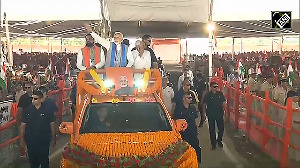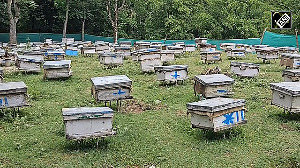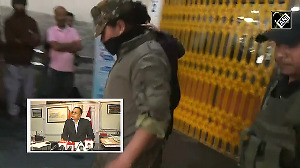Taking note of factors like corruption and a nexus with the mafia that have affected the functioning of the police, a panel for re-drafting the 150-year-old Police Act has favoured measures for greater professionalism and insulating the force from undue pressures.
Proper performance evaluation and accountability mechanisms are envisaged in the new act, which seeks to make the police more people-friendly to enlist public participation in policing.
The Police Act Drafting Committee, headed by noted jurist Soli Sorabjee, was constituted by the Union home ministry in September last year.
The committee, in its 27 meetings, took note of the deterioration in the functioning of the police due to factors like lack of professionalism, undue interference, frequent and arbitrary transfers of key functionaries, corruption and a nexus between its personnel and the crime mafia.
Before making its suggestions, the PADC considered wider perceptions of the public about police and took note of recent amendments to policing legislations in Britain, Ireland, South Africa, Pakistan and Sri Lanka. The draft outline of the new law suggests adopting better methods for investigation and maintenance of public order and making policing pro-active to effectively meet newer and emerging challenges.
The suggestions also include putting in place mechanisms for meeting emerging challenges like extremism, cyber crime, and organised and international crime.
Empowering
Outlining policing patterns for metropolitan and rural areas, facing new challenges like terrorism and organized crimes, and selection of key functionaries with fixed tenures were some other areas considered by the committee. The panel also pondered over topics like performance evaluation, training and research, preventing extraneous agencies from influencing the police and making the force accountable for their deeds or misdeeds.
Besides, it addressed the working and living conditions of police personnel and emphasised the care of vulnerable sections of society as well as human rights. The suggestions also include setting up of a statutory board to examine complaints about being subjected to 'illegal' orders. The board will function as a safeguard against undue interference with the functioning of the force.
The police establishment is sought to be made autonomous so that postings of all officers other than the director general will be decided internally and if a state government objects to any posting, it will have to give reasons for it in writing.
The selection of the state police chief will be made from a panel of three senior-most officers, the panel has suggested.






